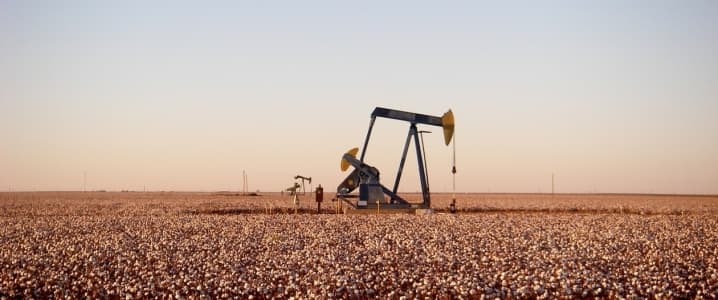If you protest an oil or gas pipeline in Texas, you could face up to 10 years in prison.
The bill on the verge of becoming law in Texas would classify civil disobedience against the construction of a pipeline in Texas a third-degree felony, putting it on “the same level of felony as attempted murderers,” according to the Texas Observer, or equivalent to sentences handed down to “drive-by shooters who fail to hit their mark,” as Bloomberg put it.
The legislation would elevate pipelines as “critical infrastructure,” classifying them in the same category as power plants and water treatment facilities. But it would also include projects under construction, going beyond current law, according to the Observer.
Those violating the law – say, community or environmental groups looking to disrupt construction – could face 10 years in prison and also liable for damages.
The bill in Texas is the latest in a wave of anti-protest bills sweeping state capitols, and they are a reaction by the industry to the Dakota Access Pipeline protests in the summer of 2016 and the decade-long battle over the Keystone XL pipeline.
Similar bills have already passed in North Dakota, South Dakota, Louisiana, Iowa and Oklahoma. They are part of a concerted effort by industry groups and their allies in state capitols. According to the National Lawyers Guild, as of early 2018, there were 58 anti-protest bills moving through the legislatures of 31 states.
Criminalizing protest is seen as a vital step in paving the way for more oil and gas infrastructure. A lot is at stake. New midstream capital expenditures is expected to hit $791 billion over the next 17 years, according to The Interstate Natural Gas Association of American (INGAA), or about $44 billion per year. That spending will translate into an additional 41,000 miles of pipeline, plus an additional 139,000 miles of gathering lines. Related: The Single Most Bullish Indicator For Oil
But protests have proliferated against oil and gas infrastructure as the climate crisis continues to grow worse. Just this week, protestors blocked BP’s headquarters in London to interrupt the annual shareholders meeting. That comes on the heels of the disruptive Extinction Rebellion protests in April, which saw the entrance of the UK headquarters of Royal Dutch Shell blocked in April.
As protests swell and disrupt more oil and gas operations, the industry is trying to head off and break up planned actions before they start. Earlier this year, The Intercept reported on how Minnesota police had been preparing for 18 months for a major protest over the Line 3 pipeline, a key project that would replace and add midstream capacity, carrying oil from Canada to the United States. Law enforcement in Minnesota worked with private contractors to monitor protestors in order to prevent a disruption on the scale of the Dakota Access protests.
Some of the laws face litigation as critics say they violate first amendment rights to free speech. But prosecutions are already occurring and the chilling effect is likely to be powerful. Related: OPEC+ Top Priority: Don’t Crash Oil Prices
Ultimately, the urgency around pipelines is an outgrowth of booming oil and gas production. For instance, the bottlenecks in the Permian led to steep discounts for oil based in Midland last year. Those differentials narrowed as some pipeline capacity came online. But with production still rising and exports surging, the shale industry is desperate for more pipelines.
The same is true in North Dakota and Canada, where upstream production has had trouble finding its way to market. Trains have stepped in to fill the gap in the interim, but the oil and gas industry ultimately wants to build more pipelines.
According to Rystad Energy, the U.S. is on track to add another 1.1 to 1.2 million barrels of oil per day this year, an increase of about 16 percent. That comes after a rather unimpressive first quarter. “The slow first quarter implies an even steeper expected growth curve for the remainder of the year. In fact, acceleration of oil production for many operators is already underway and oil additions are thus likely to increase notably already in the second quarter of 2019,” Veronika Akulinitseva, senior analyst at Rystad Energy said in a statement.
ADVERTISEMENT
More oil means more pipelines need to be built.
By Nick Cunningham of Oilprice.com
More Top Reads From Oilprice.com:
- Hydrogen Fuel Tech Just Got A Major Boost
- The Threat In Iraq Is Being Overblown
- OPEC+ Top Priority: Don’t Crash Oil Prices

















